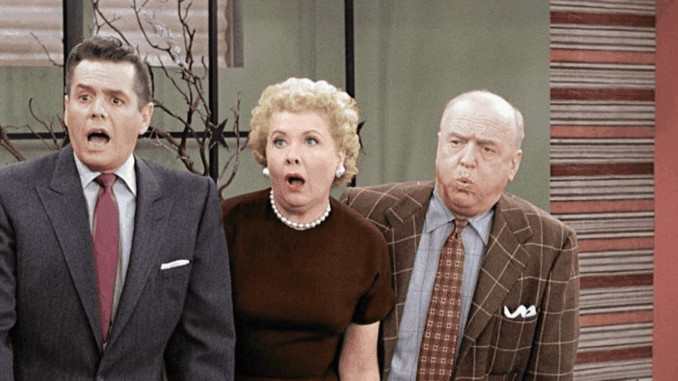
In an era when television was overwhelmingly dominated by white actors and characters, Ricky Ricardo—played by Cuban-born Desi Arnaz—was a revolutionary figure on American TV screens. More than just Lucy’s husband on I Love Lucy, Ricky was a symbol of cultural diversity, musical talent, and creative innovation.
A True Pioneer of Representation
Ricky Ricardo was one of the first Latino characters on American primetime television, played authentically by a Latino actor. His presence challenged the norms of the 1950s, introducing millions of viewers to Cuban music, culture, and language.
Desi Arnaz infused the character with his own vibrant personality and musical genius. As the bandleader of the Tropicana Club, Ricky brought lively Latin jazz and Afro-Cuban rhythms into American living rooms. His performances of songs like “Babalu” and “Cuban Pete” became legendary moments in the series.
The Straight Man with Heart
While Lucy’s antics often took center stage, Ricky was the perfect foil. His calm, sometimes exasperated responses to Lucy’s wild schemes made the comedy sharper and more relatable. But Ricky was more than just the “straight man”—he was a loving husband, a devoted father, and a man with his own dreams and struggles.
His relationship with Lucy was portrayed with a tenderness and mutual respect rare for television couples of the time. They argued, laughed, and supported each other in ways that felt authentic, despite the show’s comedic nature.
Innovator Behind the Camera
Beyond his on-screen role, Desi Arnaz was a visionary producer and entrepreneur. Alongside Lucille Ball, he co-founded Desilu Productions, which revolutionized TV production techniques. They pioneered the multi-camera setup filmed before a live audience, a format still used in sitcoms today.
Arnaz also helped popularize the practice of reruns, changing how TV networks thought about programming and revenue.
A Lasting Cultural Impact
Ricky Ricardo’s character helped open doors for Latino actors and storytellers in Hollywood. He was a beloved figure who showed that Latino culture could be celebrated, respected, and enjoyed by a broad audience.
As part of one of TV’s most famous couples, Ricky’s charm, musical talent, and cultural significance made him an enduring figure in television history. His legacy is a reminder of how I Love Lucy broke barriers—not just in comedy but in cultural representation.
